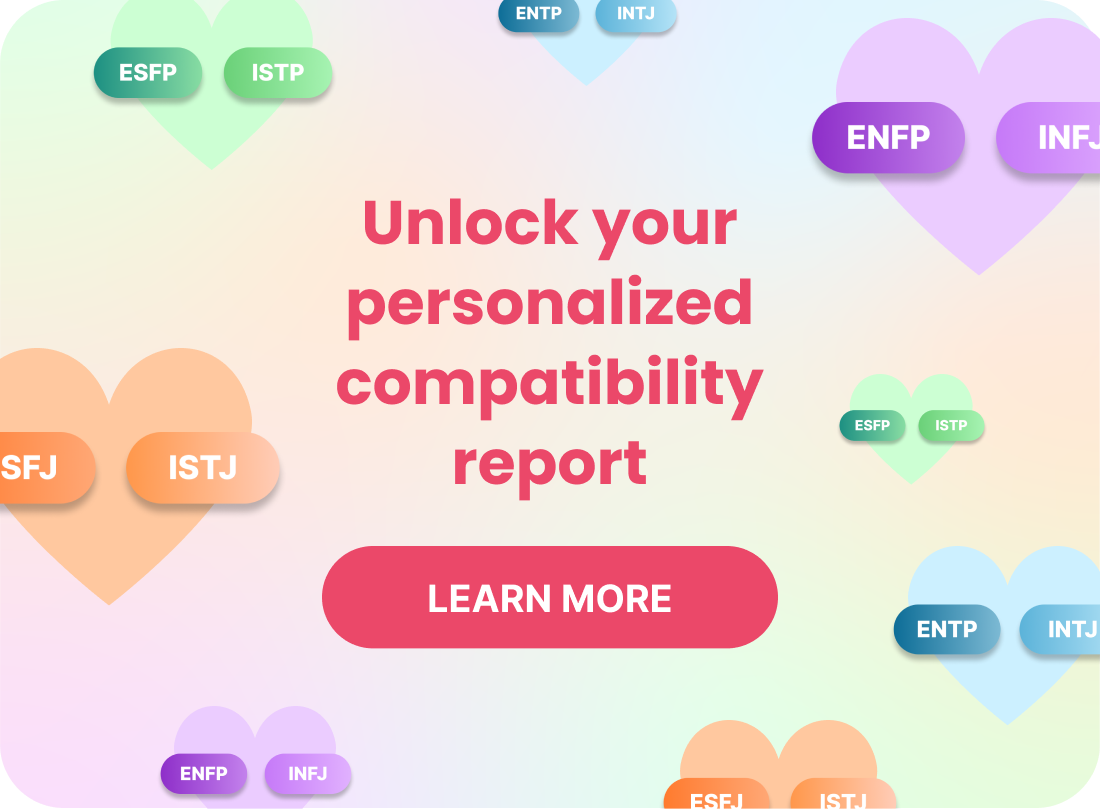8 Clear Signs You’re an Intuitive Empath
You have probably known for a while that you’re an empath. Now you’ve discovered the term “intuitive empath,” and you’re intrigued. Might this term help you understand who you are and how you experience life? Well, read on.

You have probably known for a while that you’re an empath. Now you’ve discovered the term “intuitive empath,” and you’re intrigued. Might this term help you understand who you are and how you experience life? Well, read on.
First, let’s explore what the term “intuitive empath” actually means. An intuitive empath is someone who has an innate ability to sense and feel other people’s emotions with very few external cues or obvious behavior. Intuitive empaths can appear to have psychic-like abilities, and they naturally pick up on subtle energy shifts in their environment.
An intuitive empath differs from a typical empath in that they don’t need the same level of input from those around them to read people’s emotions. Instead, they are able to use their intuition to piece together clues and impressions to form an understanding of how those around them are feeling.
For example, a typical empath might need physical cues, such as facial expressions or body language, to understand how someone is feeling. However, an intuitive empath is able to sense someone’s true emotions, even if the person in front of them isn’t revealing any outward signs. It’s like having a sixth sense when it comes to understanding someone’s emotional state.
8 Signs You’re an Intuitive Empath
If you think you might be an intuitive empath, here are some signs to look out for.
1. You pick up on subtle energy shifts in the environment around you.
Picking up on subtle energy shifts in the environment is one of the strongest indicators of intuitive empath abilities. It’s like tuning into a frequency that most people don’t even know exists. You likely won’t even know what it is that you’re picking up on, but it’s a feeling in your gut. Sometimes it might be a feeling of tension or unease, and other times, it might be something more positive. Typical empaths also pick up on people’s energy, but intuitive empaths are more in tune with very slight changes in the environment.

2. You trust what you feel over other people’s words or actions.
A distinctive trait of an intuitive empath is the willingness to trust what you feel over what others are telling or showing you. People with these abilities understand that words and actions can often mask true intentions or emotions. For example, someone might be smiling and telling you they’re fine, but you can feel deep down that something is off. Or, someone might be telling you that they want to help, yet you can sense that they don’t really mean it. By relying on your intuitive empath abilities, you can get to the heart of the matter in a way that many others can’t.
3. You consider an emotional response in the context of the bigger picture.
Considering an emotional response in the context of the bigger picture is another key trait of intuitive empaths. Rather than simply registering a person’s immediate emotional state, you are able to take a step back and consider the situation they are in or have been through in order to understand why they are feeling the way that they are. You might consider their past experiences and what’s going on in other areas of their life, as well as their current circumstances. It takes a certain level of depth and intuition to understand how all the pieces of a puzzle fit together. Being an intuitive empath isn’t just about sensing emotions but understanding the ‘why’ behind them.
4. You can’t explain how you “know” what someone is feeling.
Not being able to explain how you “know” what someone is feeling is another common sign of an intuitive empath. You just know it, and there isn’t much more to it than that. It’s like a sixth sense that you just have, and it can feel quite enigmatic at times, even to yourself. But it’s not that you are trying to come across as mysterious; it’s just that you simply can’t explain your intuitive empath powers with words. You might surprise people by being able to accurately pick up on how they are feeling. But when they ask you how you knew, you might just say, “I don’t know, I just did.”
5. You can sense how a situation will impact someone emotionally in the future.
Another sign of an intuitive empath is that you can sense how a situation will impact someone emotionally in the future. Intuitive empaths are sometimes better able to predict how an event will make someone feel than the person themselves. For example, someone might be about to break up with their partner, and they think they’ll be fine. But you can sense that it will end up hurting them much more than they expect. Intuitive empaths are often able to see how scenarios will play out emotionally. However, most don’t share these predictions with others because they know it might come across as condescending.
6. You have “aha” moments when understanding those around you.
Intuitive empath abilities can also manifest in the form of sudden realizations or momentary flashes of insight, which some describe as “aha” moments. You might be listening to someone talk about a problem they’re having and suddenly have a deep understanding of why they are struggling. It’s not that you know all the details, but rather you can sense what is going on beneath the surface. Intuitive empath insights aren’t always instant—it sometimes takes time to recognize certain patterns or connections. When it does happen, it can feel like a lightbulb moment.
7. You trust yourself to read people even when they don’t give much away.
A key sign indicating you might be an intuitive empath is having a deep trust in your abilities to read people, even if they don’t give much away. Not everyone trusts their intuition or even knows how to access it. However, intuitive empaths are naturally in tune with their instincts without needing any external validation. Those with lesser intuitive empath abilities might be more cautious and second-guess themselves, but an intuitive empath is secure in their ability to read people accurately. They have a strong level of certainty that they can pick up on what someone is really feeling, and for good reason—they’ve been right many times before. In fact, it’s very rare for an intuitive empath to be wrong in their assessment of someone.

8. You feel overwhelmed in crowded places.
The last key trait to look out for is feeling overwhelmed in crowded places. Intuitive empaths can feel inundated by the emotions of those around them. Crowds, especially large ones, can be draining for intuitive empaths. It can be too much energy for them to process all at once. While typical empaths tend to feel overwhelmed in highly emotional situations, such as conflict and distress, the bar is lower for intuitive empaths. They can even become overwhelmed in situations that aren’t particularly emotional or intense because they pick up on so many subtle cues. This is why it’s crucial for intuitive empaths to be mindful of their energy levels.
Nurturing your intuitive empath abilities
If you recognize yourself in the traits of an intuitive empath, there are several steps you can take to foster and nurture your gifts. One is to practice tuning into your intuition on a regular basis. Spend time journaling every day to give yourself space to connect with your inner voice. You might be surprised at how much wisdom you have within, which can help enhance your intuitive empath abilities.
Mindfulness meditation can be a powerful tool for strengthening your intuitive empath abilities. Mindfulness encourages an inward focus, helping empaths to understand their own emotions and reactions better. This self-insight can also help you to manage any overwhelming feelings due to your heightened sensitivity to others’ emotions. Like journalling, mindfulness meditation can also enable you to connect with your inner wisdom and intuition.
Connecting with others who share similar empathic and intuitive abilities can also be helpful. It can bring a sense of validation and normalcy to your experience, as well as valuable support and advice. Building relationships with like-minded individuals can provide you with an empowering community that understands what it’s like to have these unique gifts.
Personality types and intuitive empaths
There are correlations between personality types and intuitive empaths, as well as other types of empaths. INFJs, INFPs, ENFJs, and ENFPs have the strongest tendencies to be intuitive empaths. This is because these personality types tend to be highly sensitive and intuitive, making them very in tune with the emotions of others.

INFJs, INFPs, ENFJs, and ENFPs greatly value harmony in their relationships and are exceptionally talented at reading between the lines, especially when it comes to people’s emotions. They have a deep understanding of what motivates people and can quickly detect if someone is holding back or not telling the whole truth.
While being an intuitive empath is not exclusive to these personality types, they are naturally predisposed to the traits and characteristics associated with being an intuitive empath. It’s certainly possible for other personality types to be intuitive empaths, too, either through innate abilities or by developing their intuitive empath gifts over time.
Setting boundaries as an intuitive empath
If you are born as an Intuitive empath, it isn’t something you can turn on and off. It’s a part of who you are, and it will always be a part of you. Now, this can be both a blessing and a curse.
On the one hand, being an intuitive empath allows you to understand others, which can be a great asset in forming meaningful relationships. It can also help you to uncover people’s true intentions. On the other hand, it may be overwhelming at times because it can be hard to shield yourself from other people’s energy. It can feel like you’re constantly bombarded with emotions, which can be exhausting.
Even typical empaths can feel overwhelmed by other people’s emotions on a regular basis. Now, consider intuitive empaths who can sense emotions at much lower levels. As such, they are absorbing emotions more frequently and with more intensity.
It’s essential for any empath to have clear boundaries and coping mechanisms, and this is especially important for an intuitive empath. Protecting yourself from the emotions of others, particularly if you don’t have the capacity to handle them at the moment, is essential for your well-being as an intuitive empath.
Developing and maintaining healthy boundaries with others is a key part of being a balanced intuitive empath. You need to be able to recognize when you are taking in too much energy from those around you. This might mean stepping away from a conversation or environment that is particularly draining. It can also mean setting limits with people and understanding that it’s ok to say no. Your well-being is important—you need to make sure your own cup is full before you can fill the cups of others.
Final thoughts on intuitive empaths
Intuitive empath powers can be an incredibly valuable gift as long as they are used responsibly and appropriate boundaries are maintained. While intuitive empaths are often right, it’s important to be aware that intuition isn’t always 100% reliable. It can be easy for empaths to get caught up in the emotions of others or make assumptions about them.
That being said, intuitive empaths are known for navigating the world with a depth of understanding that goes beyond the surface. Their abilities can help to create compassionate connections with others and promote positive change. Many intuitive empaths have causes that they are deeply passionate about, often relating to human or animal rights.
While being an intuitive empath comes with its challenges, it comes with the tools to bring healing, empathy, and a greater understanding to the world.
If you enjoyed this post, you might also like our dark empath test.




